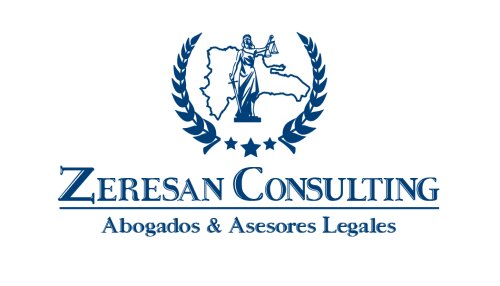Best Employment Rights Lawyers in Dominican Republic
Share your needs with us, get contacted by law firms.
Free. Takes 2 min.
Or refine your search by selecting a city:
List of the best lawyers in Dominican Republic
About Employment Rights Law in Dominican Republic
The employment rights law in the Dominican Republic is primarily governed by the Labor Code, which is designed to protect both employees and employers. This framework establishes a set of rules and standards that regulate various aspects of employment, including working hours, contracts, wages, termination, and workplace conditions. The aim is to ensure fair and equitable treatment in the labor market, promoting healthy employer-employee relationships and safeguarding workers' rights.
Why You May Need a Lawyer
There are several situations where individuals may require legal assistance related to employment rights in the Dominican Republic. Some common scenarios include:
- Contract Disputes: Ensure your employment contract aligns with labor laws and fairly represents your workplace terms.
- Unfair Dismissal: Seek help if you believe you were terminated without just cause or due process.
- Wage Issues: Address concerns regarding unpaid wages, overtime, or minimum wage violations with legal support.
- Workplace Harassment or Discrimination: Legal intervention may be needed to handle incidents of harassment, bullying, or discrimination.
- Health and Safety Violations: Lawyers can assist if an employer neglects workplace safety laws, leading to hazardous working conditions.
Local Laws Overview
Key aspects of employment law in the Dominican Republic include:
- Working Hours: The standard workweek is 44 hours, with overtime paid at higher rates.
- Minimum Wage: Wages vary by sector, but employers must adhere to minimum statutory amounts.
- Termination Procedures: Employers must provide justification for termination and comply with notice periods.
- Social Security Contributions: Both employers and employees contribute towards social security, covering health insurance, pensions, and more.
- Employment Contracts: Contracts should be clear, specifying terms, conditions, and obligations of both parties.
Frequently Asked Questions
What is the minimum wage in the Dominican Republic?
The minimum wage in the Dominican Republic varies by industry and company size, with updates periodically decreed by the government to reflect economic conditions.
Are employees entitled to paid vacation?
Yes, employees are entitled to paid vacation time. The duration varies based on the length of employment, usually starting at 14 days for the first year of service.
What are the legal grounds for terminating an employee?
Legal grounds for termination include lack of work performance, misconduct, or other justified reasons. Employers must follow due processes as per the Labor Code.
How is unemployment handled?
There is no specific unemployment benefit system in the Dominican Republic. However, severance payments are mandatory if an employee is unjustly dismissed.
What protections do employees have against discrimination?
The Dominican Republic's laws prohibit discrimination based on race, gender, age, religion, or other protected characteristics in the workplace.
Can an employer require an employee to work overtime?
Overtime requires the employee's consent, and it should be paid at rates higher than regular hours as stipulated by law.
How are disputes between employers and employees resolved?
Disputes can be resolved through negotiation, mediation, arbitration, or judicial proceedings, depending on the nature of the conflict.
Is an employment contract mandatory?
Employment contracts are not necessarily mandatory but strongly recommended to outline the terms of employment clearly.
What is considered workplace harassment?
Workplace harassment includes any unwelcome conduct that creates an intimidating, hostile, or offensive environment, and it is prohibited by law.
Are there specific laws regarding maternity leave?
Yes, female employees are entitled to a paid maternity leave period and employment protection during and after pregnancy.
Additional Resources
For more information and assistance, you may contact:
- Ministry of Labor: Offers guidance and enforces labor laws.
- National Social Security Council (CNSS): Manages social security contributions and benefits.
- Non-governmental organizations: Such as the Fundación Institucionalidad y Justicia, which provides legal advocacy and advice.
Next Steps
If you need legal assistance in employment rights, consider taking the following steps:
- Consult a Lawyer: Seek advice from legal professionals experienced in employment law.
- Document Everything: Keep detailed records of employment contracts, correspondence, and incidents that might be relevant.
- Understand Your Rights: Educate yourself about your rights under Dominican labor law to better understand your situation.
- Reach Out to Authorities: Contact relevant governmental bodies for guidance and potential interventions.
Through these actions, individuals can protect their rights and pursue any necessary legal recourse efficiently.
Lawzana helps you find the best lawyers and law firms in Dominican Republic through a curated and pre-screened list of qualified legal professionals. Our platform offers rankings and detailed profiles of attorneys and law firms, allowing you to compare based on practice areas, including Employment Rights, experience, and client feedback.
Each profile includes a description of the firm's areas of practice, client reviews, team members and partners, year of establishment, spoken languages, office locations, contact information, social media presence, and any published articles or resources. Most firms on our platform speak English and are experienced in both local and international legal matters.
Get a quote from top-rated law firms in Dominican Republic — quickly, securely, and without unnecessary hassle.
Disclaimer:
The information provided on this page is for general informational purposes only and does not constitute legal advice. While we strive to ensure the accuracy and relevance of the content, legal information may change over time, and interpretations of the law can vary. You should always consult with a qualified legal professional for advice specific to your situation.
We disclaim all liability for actions taken or not taken based on the content of this page. If you believe any information is incorrect or outdated, please contact us, and we will review and update it where appropriate.
Browse employment rights law firms by city in Dominican Republic
Refine your search by selecting a city.














